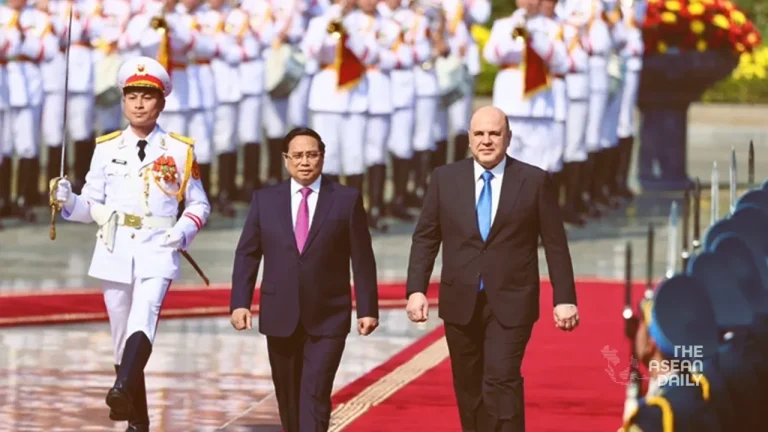14-1-2025 (HANOI) Russia and Vietnam have inked a landmark nuclear energy agreement during Russian Prime Minister Mikhail Mishustin’s diplomatic visit to Hanoi, marking a renewed push in nuclear power development between the long-standing allies.
The agreement, signed on Tuesday, comes as Vietnam seeks to revitalise its nuclear power ambitions to meet its surging energy demands. Notably, Rosatom’s General Director Alexey Likhachiov expressed keen interest in collaborating on the Ninh Thuan nuclear power project, according to Vietnam’s science and technology ministry.
The Ninh Thuan project, which had previously been shelved in 2016, encompassed plans for two power plants in the central province, designed to generate a combined output of 4,000 megawatts. The original scheme had envisioned development through a partnership between Russian state nuclear corporation Rosatom and Japanese consortium JINED.
Likhachiov’s presence in Hanoi, where he held talks with Vietnamese Prime Minister Pham Minh Chinh—their third encounter within six months—underscores the growing momentum in bilateral energy cooperation. The nuclear agreement was one of seven accords signed during the visit, spanning sectors including digital technology and electronics.
This latest development follows Russian President Vladimir Putin’s visit to Hanoi six months ago, during which former Vietnamese President To Lam signalled enthusiasm for enhanced defence collaboration. Putin notably emphasised the alignment of both nations’ perspectives on crucial international matters, even as Western nations intensified sanctions against Russia over its military actions in Ukraine.
The historical bonds between Moscow and Hanoi, forged during the Cold War era, continue to influence their contemporary relationship. Tuesday’s proceedings saw Prime Minister Mishustin engage in high-level discussions with both Prime Minister Chinh and To Lam, who now serves as Communist Party general secretary.
Whilst Russia has historically dominated Vietnam’s arms procurement—accounting for over 80 percent of military imports between 1995 and 2023—recent years have witnessed a decline in defence orders. This downturn coincides with heightened international sanctions related to the Ukraine conflict.




